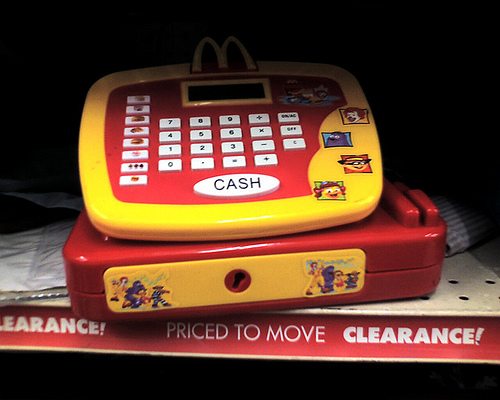Credit cards and credit card fees are often blamed for getting into costly debt, and in some sense, there is bit of truth to the bad rap they receive.
In Psychology Today, cognitive scientist Art Markman explains that people tend to forget prices more quickly and value them less when they’re paying with a credit card, because they don’t feel the immediate “pain” that an empty wallet brings about.
Likewise, research indicates that impulse buying and average order sizes increase when customers can pay with credit.
On the contrary, credit cards can be one of the most valuable financial tools you’ve got in your wealth building arsenal — but only if you know how to make them work for you, while at the same time, costing you nothing.
Here are five credit card fees you can easily avoid:
Don’t pay to play
Unless you’re truly a heavy user of a certain brand, such as a travel card that rewards with free checked baggage, flights, or hotels that significantly offsets the fee, there are few justifications to paying an annual fee to use a credit card with the many free and attractive rewards programs available through major issuers.
[pull_quote align=”left”]Monitor how your credit score is impacted by your credit use. As soon as you have proven yourself worthy for an unsecured card, switch to a product that doesn’t charge you to be a cardholder.[/pull_quote]If you’ve had a catastrophic financial event that has made it impossible to secure a credit card without paying a monthly or annual fee, you may have no choice. But you can be proactive about how long, and how much, you pay to reestablish healthy credit and avoid credit card fees.
Monitor how your credit score is impacted by your credit use. As soon as you have proven yourself credit worthy for an unsecured card, switch to a product that doesn’t charge you a fee to be a cardholder.
Be aware of swipe fees
Merchants have long been paid “interchange fees” to Visa, MasterCard, American Express and Discover for allowing customers to pay with credit cards, and up until now these credit card fees were simply a cost of doing business. (If you’ve ever wondered why some retailers don’t accept credit cards for low dollar amount purchases, that’s the reason).
In mid-July, a proposed settlement as a result of a lawsuit between Visa, MasterCard and bank card issuers, could allow merchants to pass the fee onto consumers. The credit card fee would be reflected in a “swipe fee” line item on a receipt, and amount to from 1% to 4% of the total purchase.
Though 10 states ban the surcharge, merchants in states without such a restriction have the legal right to add it to your bill. They will, however, be legally required to post notices of the surcharges at entrances and cash registers. If you don’t want to pay the credit card fees, avoid these retailers, or use cash.
Be strict about dates
Missing a credit card payment, even by a day, can cost as much as $35 in credit card fees each month (not including additional interest), depending on how frequent a repeat offender you are.
[pull_quote align=”left”]According to MyFico, “a recent late payment can cause as much as 90-100 point drop on a FICO score of 780 or higher.”[/pull_quote]Though many lenders do not report missed payments until the account is 30+ days past due, they have the right to, which could lower your credit score, and boost your interest rates.
According to MyFico, “a recent late payment can cause as much as a 90-110 point drop on a FICO score of 780 or higher.”
Whenever possible, use automatic, recurring monthly online payments and schedule them to arrive at least two or three days before the payment due date as a way to avoid credit card fees. If you must use the mail, allow at least two weeks for the payment to arrive and be processed.
Know what you owe
Know the minimum amount that each lender is owed, and never pay less than that. Short payments that arrive on time are no different than not paying at all, in the lender’s eyes.
Credit card issuers vary in what credit card fees they’ll impose, but expect to be charged a late fee, and a sky-high default interest rate — even if you have already taken steps to close the account. If you close the credit line at the time you pay less than the minimum, keep in mind that the resulting credit card fees and interest could push you over the credit line — resulting in additional fee nightmares.
Check the policy on credit card fees
If you’re planning to use a credit card while traveling abroad, check with your credit card issuer about credit card fees for foreign transactions (also called currency conversion fees), before you use the card.
If you’re debating an online purchase from an international vendor not dealing in U.S. currency, call your creditor before your complete that transaction, too.
Some major issuers charge 2-3% of a foreign currency purchase — even if its made online. If you’re considering using any type of convenience service offered by your credit card like a cash advance, balance transfer, or ATM use, know the cost.
Creditors vary in what they’ll charge, but there’s a good chance that such services will cost you something in credit card fees.
[cspbio]




